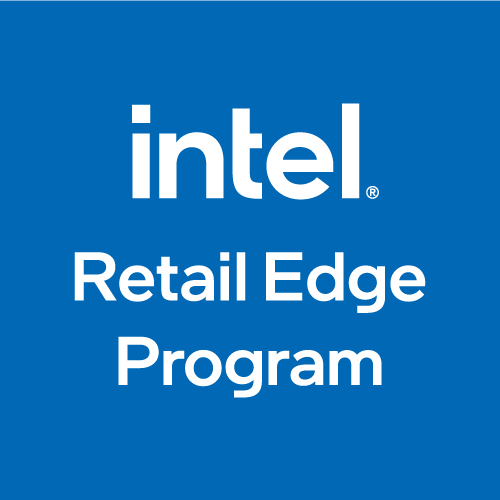11/18/20

Developing and maintaining a cohesive team in the face of competition is essential to success. That’s why management must make a committed and intentional effort to foster a team environment. The basic premise is simple: when coworkers work as a unit instead of a collection of individuals, everyone comes out ahead. That includes the customer.
Is there really that much interest in team building? One way to catch a glimpse is to conduct some quick online searches. Start with Google. Using the phrase “team building” will yield 4,370,000,000 results in 0.95 seconds. What about Bing? You'll get 41,200,000 results in less than four seconds.
Want to see what happens elsewhere? Go to Amazon.com and use the same search phrase. The result is 62,121 in titles alone. Add in the other results, and you have 1,342,076 results. Head over to LinkedIn, and you can add another 1,020,169 to your tally. Any way you slice it, there are many thoughts, best practices, and questions on how to create a viable team in just about any industry setting.
The data above shows that finding different tips, strategies, and suggestions for team building is relatively easy. Checking out a few of the results is likely to confirm that management must actively participate in the team-building process. In other words, it’s difficult, if not impossible, to build a team unless management invests in the effort.
What are the basics of a T.E.A.M. approach that involves dedicated management? Consider these components and how they relate to achieving the goal of building and maintaining a productive and reliable team:
Training is a core element of team building. Think of the products, brands, makes, and models that compose the inventory that the team member will sell. Training includes developing product knowledge that makes it easier to match a product with the customer’s needs or wants. That knowledge bolsters a team member's confidence and allows them to deliver the support that customers expect and appreciate. It also certainly helps the associate meet sales goals.
Chances to learn about products must be ongoing. Start with the basics and then explore product features and how they benefit your customers. Take advantage of any co-training opportunities offered by your brand partners, as they provide even more information to empower your sales associates. Include training that offers tips and guidance on interacting with customers, upselling products, and other soft sales skills.
Engagement in the workplace is essential if there’s to be a coherent team. Cohesion helps remove barriers to performance. Enhanced performance means greater benefits for associates and the company and an increased ability to achieve the company’s collective goals.
Jim Harter, Ph.D., chief scientist for Gallup's workplace management and well-being practices, points out that managers account for 70% of the variance in team engagement. That pairs with employee experience and how employees interact and react to management. The amount of mutual engagement (engagement by employer and employee) may vary based on the work culture, but higher engagement rates indicate a more productive work setting.
A recent Gallup report showed a historic drop from a record high in employee engagement, 38% to 31%. Disengagement can lead to missed sales opportunities, poor customer experiences, and the spread of apathy among your team. While the workplace for every industry has been quite different in 2020, these percentages show plenty of room for employee engagement improvement. The bottom line is that engagement is essential for promoting a team environment in the workplace.
Change is typical in the retail world. It’s not just about technological changes. Shifts in customer preferences, shopping habits, and trends are customary. When something out of the ordinary happens, such as the circumstances of 2020, many changes happen to meet customer needs and keep the company viable. Changes also occur in the retail sales team.
There’s not always months to plan some update or change. The ability to make changes and quickly adapt to the latest order of things is essential for working as a team. This flexibility prepares for future changes that are sure to come, whether in inventory, job responsibilities, policies and procedures, or even the salesfloor layout.
The most productive managers can adapt quickly. They, in turn, inspire and cultivate that same quality in the team members. The result is a team that works together with greater ease and helps mentor associates who have just become part of the team.
Motivation comes about when one feels valued. It’s not about money per se, although that can be one factor that helps build confidence. A key element is how managers interact with team members. A manager who can answer yes to these questions is offering motivation regularly:
Think of examples of actual events that support your answers. If you can still answer yes after listing some examples, you are a manager who understands how to convey your appreciation for your associates. More than likely, your team views you as a motivating manager.
Staff turnover in retail is high, particularly in those stores selling technology devices and electronics. Retaining good, qualified staff is a challenge for many stores. Keeping employees motivated has a significant impact on retention rates and sales. Take a genuine interest in your team. Motivate them not only with words but with your actions too.
You’ve heard the old saying that there’s no “I” in "team." That’s as true today as when the phrase was first coined. In a retail setting, success requires teamwork that recognizes individual talents while ensuring they meld together for the good of all. When this happens, it’s not just a matter of meeting goals; the potential to exceed them is very real.
There’s no magic spell you can cast to make this happen in one fell swoop. Much depends on the culture you build in the store. Developing the right culture and a cohesive team requires everyone's ideas and active involvement. This leads to success in meeting strategic goals, optimizing team talents, and improving customer satisfaction and brand advocacy.
Henry Ford said, “Coming together is a beginning. Keeping together is progress. Working together is success.” Do your part to create success for your business and a better customer experience by building a powerful and positive team environment.
The Intel® Retail Edge Program provides an educational and fun way for retail sales associates and management-level staff to learn about Intel® products and technologies. You’ll also find tips for improving sales skills, opportunities to interact with your team members, and more.
Sign up for the Intel® Retail Edge Program today and encourage your staff to sign up too.
Click here to find out more details.
This article has been updated. The original version can be found here.
Notices and Disclaimers
© Intel Corporation. Intel, the Intel logo, and other Intel marks are trademarks of Intel Corporation or its subsidiaries. Other names and brands may be claimed as the property of others.
